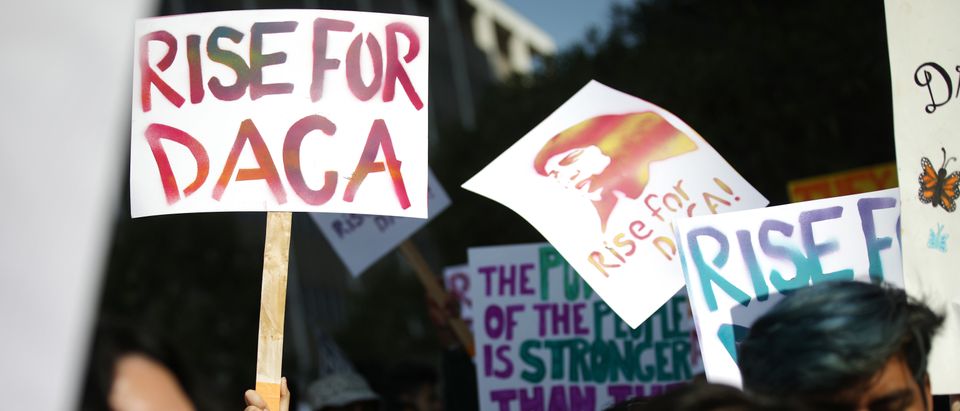The Supreme Court ruled Monday that the Trump Administration could not terminate the Deferred Action for Childhood Arrivals (DACA) program.
Chief Justice John Roberts wrote for a 5-4 majority, joining the court’s four Democratic-appointed justices. The decision was announced just over eight years to the day that former President Barack Obama launched the program, which he said at the time would be “temporary” program. The program has shielded roughly 800,000 illegal immigrants from deportation. (RELATED: Supreme Court Overturns Convictions In New Jersey ‘Bridgegate’ Scandal)
President Donald Trump announced his decision to terminate the DACA program in 2017, but lower court rulings kept the program in place for nearly three years.
BREAKING: Roberts joins court’s liberals to overturn Trump decision to rescind DACA.https://t.co/ikXL4M73lQ
— Kyle Cheney (@kyledcheney) June 18, 2020
BREAKING: The US Supreme Court has ruled the Trump administration violated federal law when it rescinded the DACA program https://t.co/BZPX48Vimc pic.twitter.com/71H7piJJLJ
— Zoe Tillman (@ZoeTillman) June 18, 2020
The court ruled that the Trump Administration had violated the Administrative Procedure Act when it ended the program. (RELATED: Chief Justice Roberts Has Begun To Make Some Conservatives Nervous)
“The dispute before the Court is not whether DHS may rescind DACA. All parties agree that it may,” Roberts wrote in the opinion. “The dispute is instead primarily about the procedure the agency followed in doing so.”
“We do not decide whether DACA or its rescission are sound policies,” Roberts continued. ” We address only whether the agency complied with the procedural requirement that it provide a reasoned explanation for its action. Here the agency failed to consider the conspicuous issues of whether to retain forbearance and what if anything to do about the hardship to DACA recipients. That dual failure raises doubts about whether the agency appreciated the scope of its discretion or exercised that discretion in a reasonable manner. The appropriate recourse is therefore to remand to DHS so that it may consider the problem anew.”
Justice Clarence Thomas wrote a strongly-worded dissent, which was joined by Justices Samuel Alito and Neil Gorsuch. Justice Brett Kavanaugh wrote a separate dissent.
“Under the auspices of today’s decision, administrations can bind their successors by unlawfully adopting significant legal changes through Executive Branch agency memoranda.” Thomas wrote. “Today’s decision must be recognized for what it is: an effort to avoid a politically controversial but legally correct decision.”


